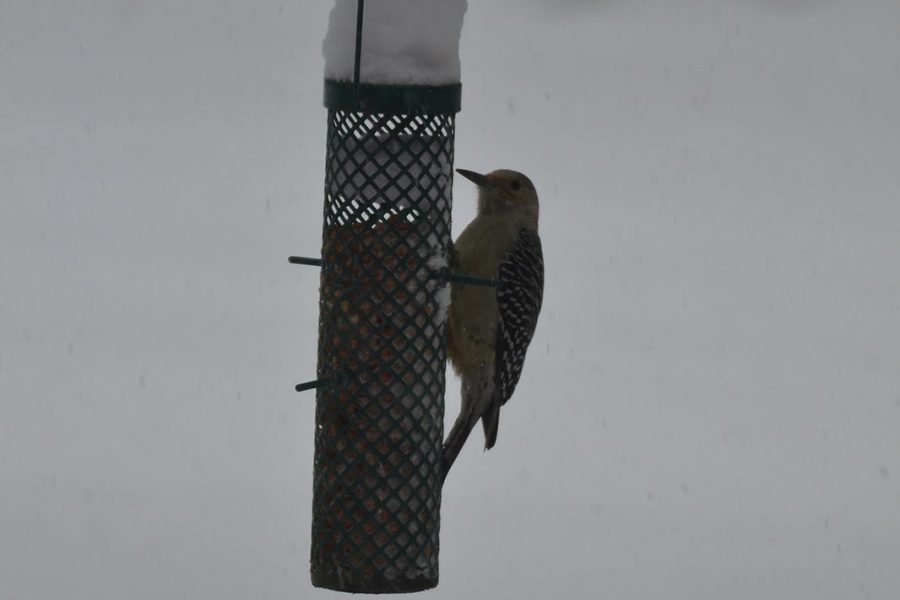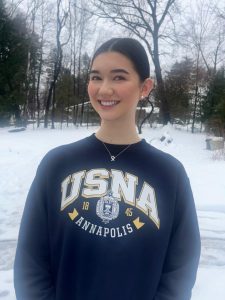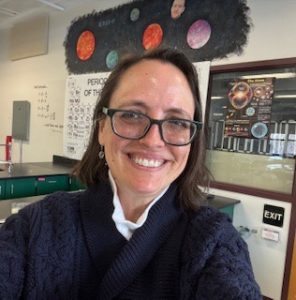Tut tut looks like rain
A sole woodpecker refuses to accept the change in season. This early November snowstorm threw quite the curveball to residents and wildlife alike as calls were made to scramble for the preservations needed for the cold hard months ahead.
November 26, 2017
The Earth is a changing place; nature moves this way and that and it’s not always human nature to keep up with it. In New Hampshire, we experience weather much stranger than most, with weather your regular run of the mill man couldn’t predict. In reality, climatologists have seen these events coming for the last 8,000 years. One of these scholars has particularly focused on the changing climate here in his home region of New England.
Dr. Stephen S. Young, Professor of Geography at Salem State University, is a well versed climatologist and is particularly interested in the ever changing weather of his home state of Massachusetts, writing several theses regarding the topic. “New England is experiencing a change that is unusual for the past 8,000 years,” said Young. “The oceans throughout the world are warming… and the Gulf of Maine is warming faster than most other bodies of oceanic water on earth.” Young has a masterful grasp of what’s happening in New England and all over the world as far as climate, but it doesn’t always take a master to see the changing world around him.
Max Porter ‘18 is a simple student at HB who’s lived in central Hollis all his life and has seen his fair share of winters, whether biting cold or shockingly dry. “Definitely weather around here is not reliable,” said Porter, “I don’t really count on getting snow before Thanksgiving usually, but sometimes I’m surprised.” As a winter athlete, Porter is far from afraid of the cold, but he is definitely cautious of the winter’s bite, unlike another local who welcomes the year round beauty of New England.
Head of the HB science department and teacher of Biology and Environmental Science, Rodney Clark had his own input regarding New England weather. “In comparison, I grew up in the midwest where tornadoes were much more of a regular event – a scary event – then here in New England I’d say in comparison our winter is much calmer,” said Clark. He assured that there is no need for fanatical obsession over wintery Octobers or late fall nor’easters as data from a much larger time sample would be needed to truly determine general changing trends.
Overall, we can reasonably trust that the New England weather will remain as erratic as ever, but keep an eye on your local weather and take the time to look outside; it’s a beautiful world out there.














